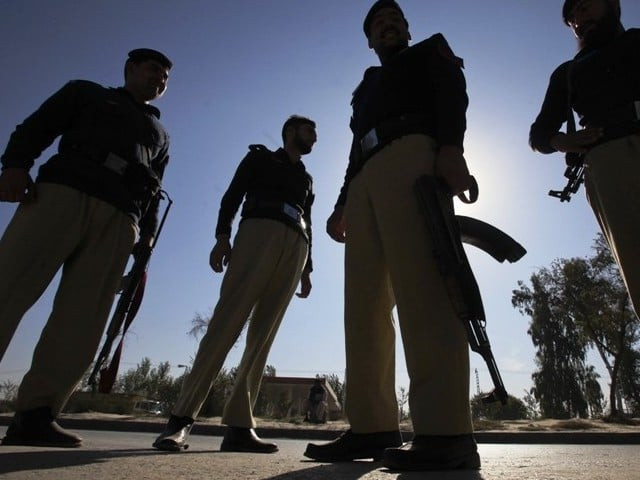Road to accountability: Residents have to go via courts to register cases against law enforcers
Most policemen brush aside complaints against their colleagues, insist they receive too many ‘fake’ cases.

The police officers who refuse to register FIRs are hardly taken to task. There is no law which bars officers from reporting case against their peers but there is always pressure from the high-ups, said Abdul Hai of the Human Rights Commission of Pakistan. PHOTO: FILE.
A few minutes after Muhammad Rameez had gone inside Landhi police station to report his brother’s abduction, he was shown the door.
“Don’t teach me the law,” bellowed a police officer to the young man, who had accused the Rangers of whisking away his brother Muhammad Saeed on April 15. “Go file this case somewhere else.”
A city warden, Saeed, had gone to Landhi town office to collect his two-month salary when he was taken away at daytime.
“My brother was picked up from this area so why would I go somewhere else to report it,” argued Rameez as he left.
But Rameez was not ready to give up. Through a courier service, he delivered his complaint to the police station, and attached the receipt with his plea at the Sindh High Court.
A few days later, the SHO himself walked to his house to get the details, eventually penning down the case.

When it comes to such cases where law enforcement agencies are accused of unlawful activities, the police tend to take the side of their own colleagues by not reporting them. Dozens of such cases land in courts every year.
These FIRs are mostly registered following the intervention of judges. Amongst the 40 petitions currently filed at the Sindh High Court against illegal detention by the police, Rangers and other agencies, most of the applicants had to beg the courts to register an FIR.
According to the Citizens-Police Liaison Committee, not registering an FIR is an offence, and a police officer faces enquiry if he does not register one.
However, the police officers who refuse to register FIRs are hardly taken to task. There is no law which bars officers from reporting case against their peers but there is always pressure from the high-ups, said Abdul Hai of the Human Rights Commission of Pakistan.

The newly-appointed Karachi police chief, Ghulam Qadir Thebo, denied the police are under pressure when it comes to registering cases against law enforcers. People often come with false complaints that make our response a bit sluggish, he said.
“So many people come to lodge false FIRs that we don’t register each and every complaint,” he explained. “We have to check with them if they are genuine or not.” Referring to the recent shooting of a taxi driver at the hands of the Rangers, he pointed out that the police registered the FIR promptly.
A complainant Ismail Khan did feel the police were under pressure when he went to Quaidabad station to report the illegal detention of his uncle, Noorain Gul, a father of eight children and an employee at Port Qasim. “We can’t register a case against the law enforcers,” the officer replied straightaway. Numerous letters, requests, and finally an order from the Supreme Court made the police register a case - a good 50 days after Gul’s abduction.
In several cases, the officers play around with words in the FIR. In Gul’s case, the FIR reads that men wearing Rangers uniform had taken away Gul.
“Charging bribes and messing up the FIR is common practice by the police,” said Hai.
Registering a case against the law enforcers sometimes invites trouble. Saleem Baloch was told to back off and not raise his voice against the officer who had beaten up his son in custody when the police picked him on May 25. An investigation officer told Baloch that his accusations that the Gizri SHO tortured his son in custody were not substantial enough to be registered, so he moved his application from the sessions to the high court.
“The SHO hit my son so much that he got nine stitches on his head. His eyesight is affected,” the father recalled. “Why shouldn’t I register a case and get the police officer punished. Why should I keep quiet?”
Published in The Express Tribune, July 31st, 2013.



















COMMENTS
Comments are moderated and generally will be posted if they are on-topic and not abusive.
For more information, please see our Comments FAQ